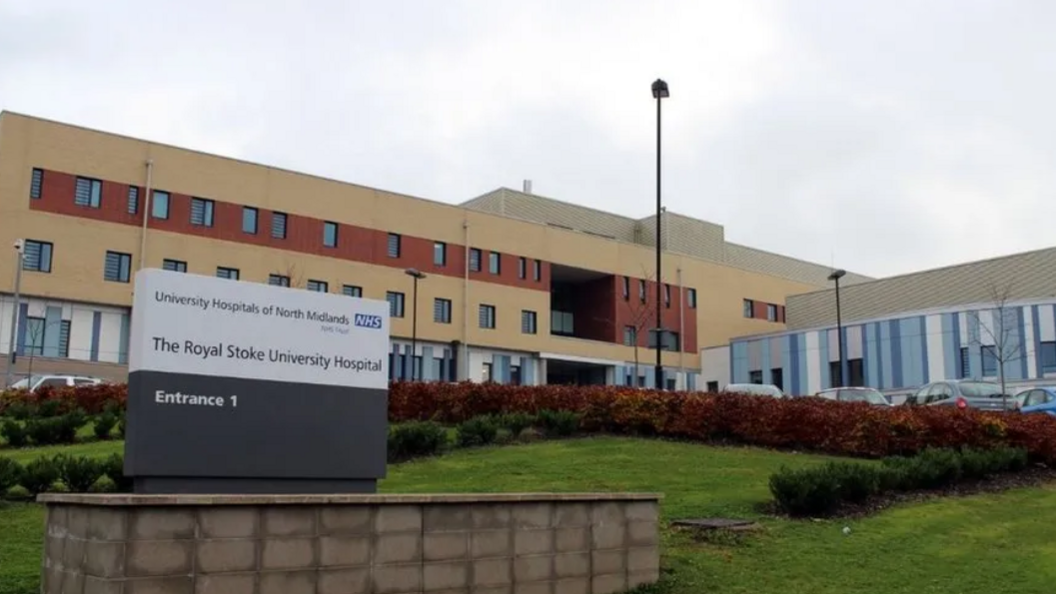Hospital set to prioritise cutting A&E delays

Concerns have been raised about ambulance handover delays at Royal Stoke University Hospital
- Published
Cutting A&E delays is the “number one priority” across the winter, hospital bosses say, as figures show nearly a third of ambulance handovers take more than an hour.
Figures show 7,579 handovers at the Royal Stoke University Hospital in Stoke-on-Trent were taking more than an hour, in the six months to the end of September.
The proportion of A&E patients seen within four hours also fell from 73% to 69.2%, the figures show.
During a trust board meeting on Wednesday, NHS campaigner Ian Syme described the figures as among the worst in the West Midlands.
University Hospitals of North Midlands NHS Trust, which runs the hospital, has also pledged to introduce measures to free up capacity to tackle those waiting times.
Mr Syme told the meeting: “It’s a major safety issue and it’s an appalling experience for the patient.
"It’s horrendous for the emergency department and it’s horrendous for the ambulance crews.”
Trust managers acknowledged the performance in this area had been “poor”.
Measures to tackle the problem include controversial measures such as corridor care and the "Your Next Patient" model, which sees patients moved from the emergency department to full wards, in order to free up capacity.
'Consistency and rigour'
The trust said it would also be looking to reduce admissions, open community hospital beds and increase discharge rates, with a focus on treating frail patients as quickly as possible.
Chief executive Simon Constable said: “There’s a recognition from the executive team that this is priority number one in terms of how we get through the next few months.”
Interim chief operating officer Katy Thorpe said the measures would have an impact if implemented with “consistency and rigour”.
“What we’ve seen is that when we get ourselves into a difficult position, and we apply our policies consistently, with rigour, with all of our teams involved, we are able to recover our position,” she said.
This news was gathered by the Local Democracy Reporting Service which covers councils and other public service organisations.
Get in touch
Tell us which stories we should cover in Staffordshire
Follow BBC Stoke & Staffordshire on BBC Sounds, Facebook, external, X, external and Instagram, external.
Related topics
- Published7 November 2024

- Published4 November 2024

- Published10 May 2024

- Published8 June 2024
